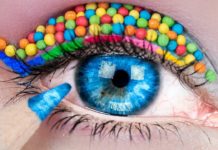Depression is a common illness worldwide, with more than a whopping 300 million people affected according to World Health Organisation (WHO). Depression is different from usual mood fluctuations and short-lived emotional responses to challenges in everyday life.
Especially when long-lasting and with moderate or severe intensity, depression may become a serious health condition. It can cause the affected person to suffer greatly and function poorly at work, at school and in the family.
The WHO, which today released its new data on depression in the run-up to World Health Day (April 7), said the lack of support for people with mental disorders and the fear of stigma prevent many from accessing the treatment they need to live productively.
Margaret Chan, WHO Director General, said, “These new figures are a wake-up call for all countries to re-think their approaches to mental health and to treat it with the urgency that it deserves.”
The number of people living with depression is increasing, with an increase of 18 percent between 2005 and 2015. This was as a result of the overall growth of the global population, as well as an increase in the number of people surviving to ages at which depression is more common.
One can have a single bout of major depression or can have recurring episodes.When depression lasts two years or more, it is called persistent depressive disorder. A less common type of depression is called bipolar disorder, or manic-depressive illness. Bipolar disorder involves cycles of depression alternating with extreme highs, or manias.
At its worst, depression can lead to suicide. Close to 800 000 people die due to suicide every year. Suicide is the second leading cause of death in 15-29-year-old’s.
When major depression or bipolar disorder are accompanied by hallucinations, delusions, or paranoia, it’s called psychotic depression. About 20 percent of people with major depressive disorder develop psychotic symptoms, according to the National Alliance on Mental Illness (NAMI).
There are effective treatments for moderate and severe depression. Health-care providers may offer psychological treatments (such as behavioural activation, cognitive behavioural therapy [CBT], and interpersonal psychotherapy [IPT]) or antidepressant medication (such as selective serotonin reuptake inhibitors [SSRIs] and tricyclic antidepressants [TCAs]).
Depression is one of the priority conditions covered by WHO’s Mental Health Gap Action Programme (mhGAP).The Programme asserts that with proper care, psychosocial assistance and medication, tens of millions of people with mental disorders, including depression, could begin to lead normal lives ,even where resources are scarce.
The WHO India office also spoke of the need to strengthen treatment structures. The mental health survey conducted last year by the Bengaluru-based National Institute of Mental Health and Neurosciences (NIMHANS) says one in 10 Indians has some mental disorder and one in 20 is depressed.
Dr Shekhar Saxena, Director, Department of Mental Health and Substance Abuse, WHO, said, “One of the steps is to address issues about prejudice and discrimination. For someone living with depression, talking to a person they trust is often the first step towards treatment and recovery.”

























